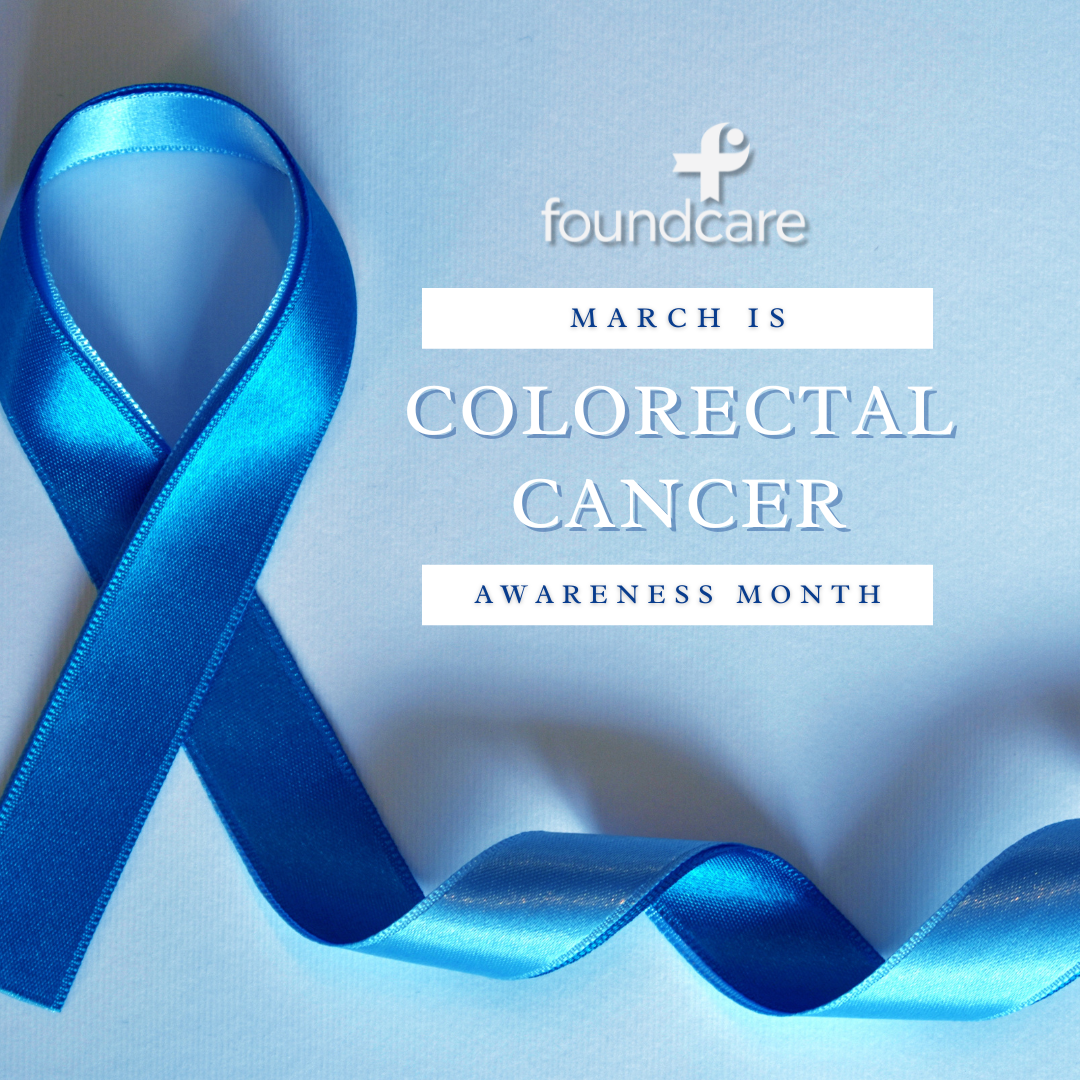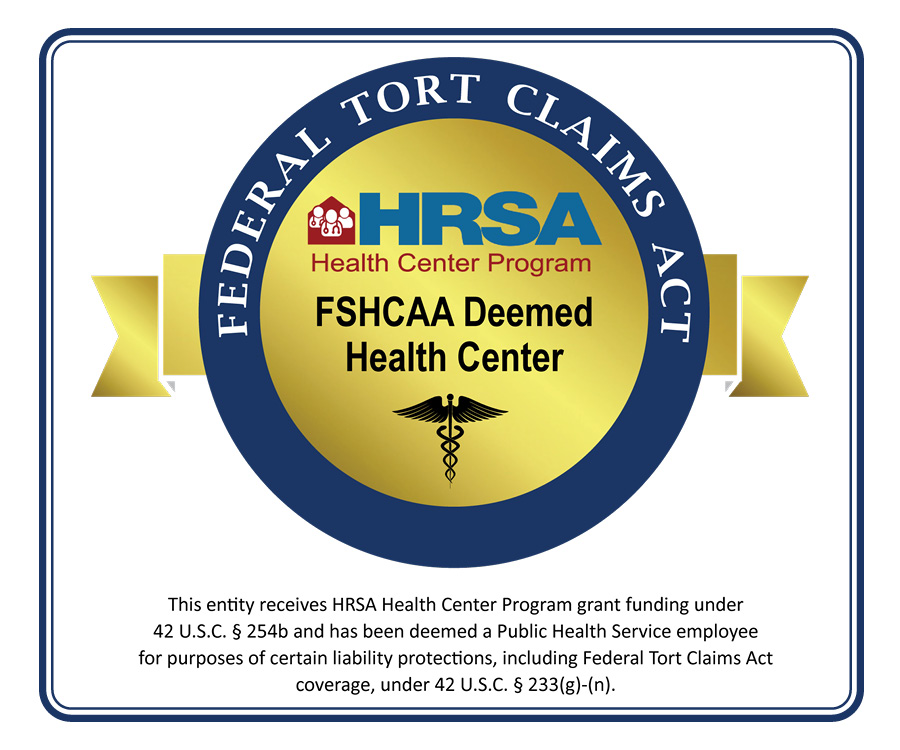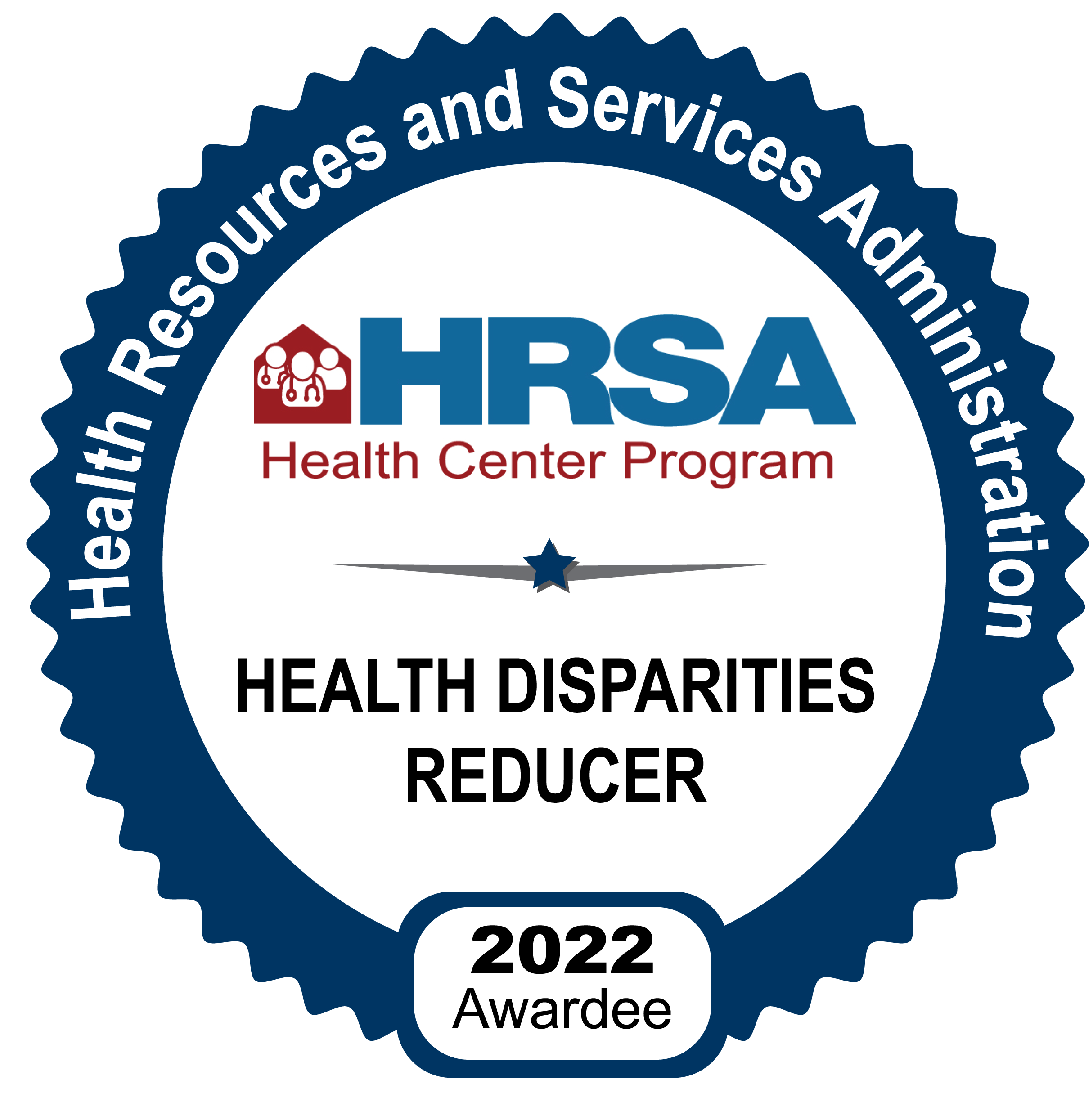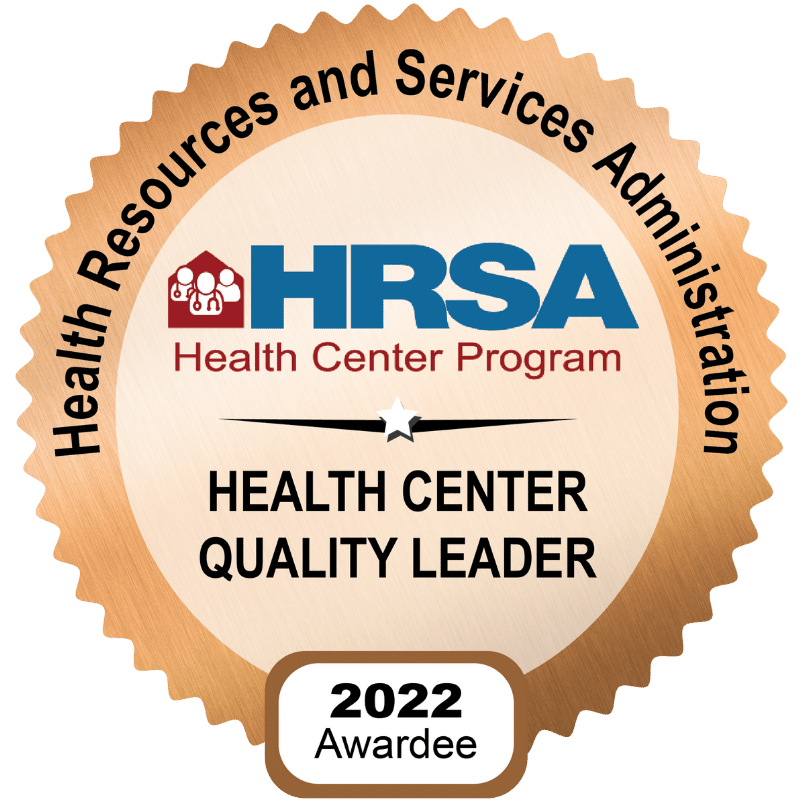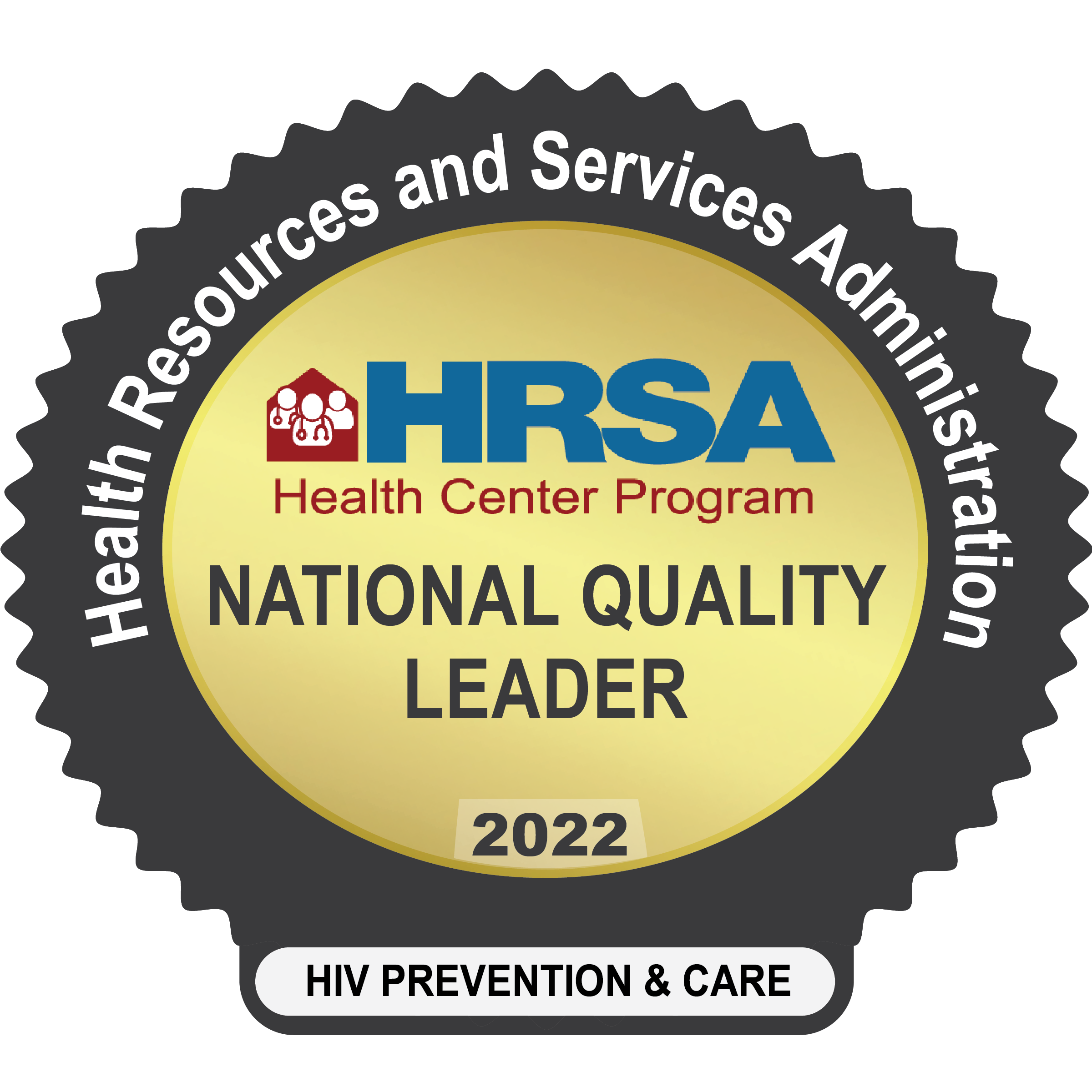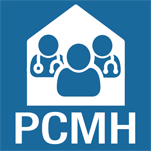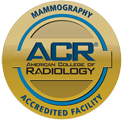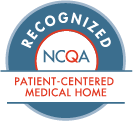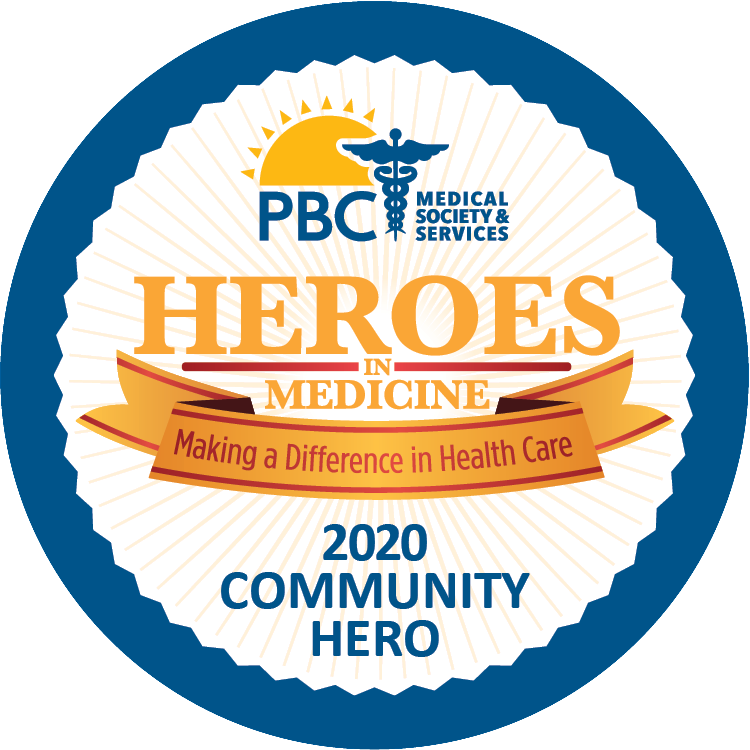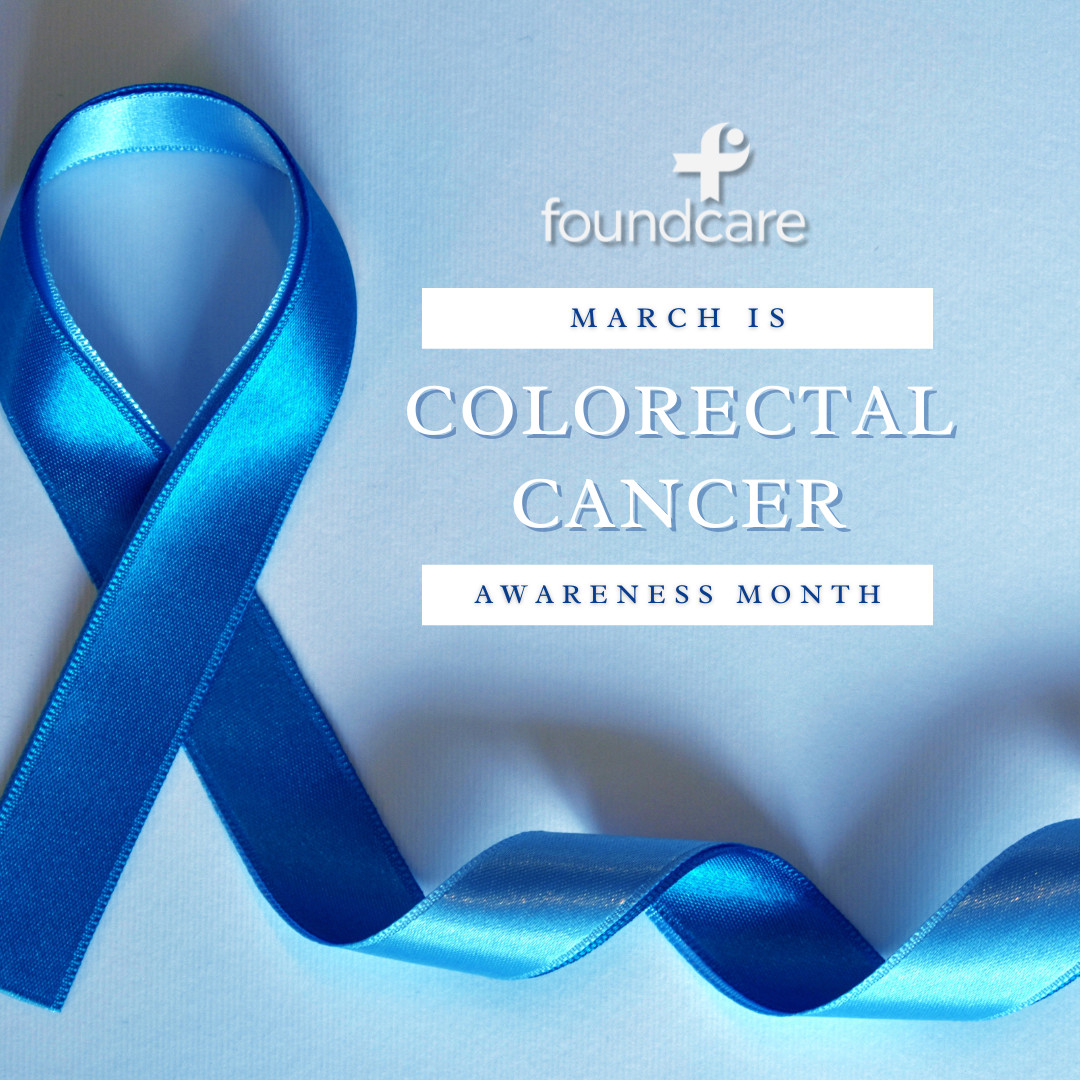
Colorectal cancer, also known as colon or bowel cancer, starts in the colon or rectum and is one of the most prevalent and deadliest forms of cancer worldwide. Despite its prevalence, awareness about colorectal cancer and its prevention remains relatively low. Throughout March, individuals and organizations worldwide unite to raise awareness about colorectal cancer, its risk factors, and the importance of early detection and prevention strategies.
According to the American Cancer Society, colorectal cancer is the third most common cancer diagnosed in both men and women in the United States. It is estimated to cause over 50,000 deaths annually in America alone. Despite advances in screening and treatment options, colorectal cancer continues to pose a significant public health challenge.
By shining a spotlight on this disease, FoundCare aims to empower individuals to take proactive steps toward reducing their risk.
What You Need to Know About Colorectal Cancer
- Colorectal cancer typically develops from precancerous polyps—abnormal growths in the lining of the colon or rectum—that can gradually transform into cancer over time. While colorectal cancer can affect individuals of any age, it is more commonly diagnosed in adults over 65.
- Colorectal cancer is highly treatable when detected early, yet many cases are diagnosed at advanced stages, when treatment options may be limited.
- Common risk factors for colorectal cancer include age, family history, personal history of colorectal polyps or inflammatory bowel disease, obesity, smoking, and heavy alcohol consumption.
- Symptoms of colorectal cancer may include changes in bowel habits (such as diarrhea or constipation), rectal bleeding, abdominal pain or cramping, unintended weight loss, and fatigue.
- Screening tests for colorectal cancer, such as colonoscopies, fecal occult blood tests (FOBT), and stool DNA tests, are recommended for average-risk individuals starting at age 45-50, or earlier for those with increased risk factors or symptoms.
- Lifestyle modifications, such as maintaining a healthy weight, engaging in regular physical activity, quitting smoking, limiting alcohol intake, and consuming a balanced diet rich in fruits, vegetables, and whole grains, can help reduce the risk of colorectal cancer.
The Role of Early Detection and Prevention
Early detection is pivotal in the fight against colorectal cancer. Screening tests such as colonoscopies, fecal occult blood tests, and stool DNA tests are instrumental in identifying precancerous growths or early-stage cancers when they are most treatable.
Early detection improves treatment outcomes and reduces mortality rates associated with colon cancer. When diagnosed at an early stage, before the cancer has spread beyond the colon, the five-year survival rate exceeds 90%. However, once the cancer has metastasized, the prognosis significantly worsens.
Early detection through regular screenings and taking steps to lower your chances of colon cancer are important for reducing incidence and mortality.
As we observe Colorectal Cancer Awareness Month, we want to emphasize that early detection and prevention save lives. Act against colon cancer today! Schedule your screening appointment with a FoundCare provider and encourage your loved ones to do the same.

